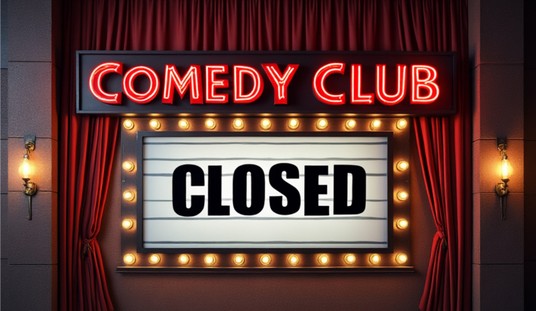I mean “awful” in the old sense of “full of awe.”
It is not often that I agree with the politics espoused by The Guardian, England’s most left-wing serious newspaper (or perhaps I mean its most serious left-wing paper). But several years ago on this date — August 6 —The Guardian published a sober and clear-sighted article about the terrifying event whose anniversary today commemorates: I mean, of course, the atomic bombing of Hiroshima. The article by the journalist Oliver Kamm won my wholehearted endorsement and I wrote about it at the time.
The idea that the atomic bombing of Hiroshima — and, since the Japanese failed to surrender, of Nagasaki on August 9 — was a “war crime” has slowly acquired currency not only among the anti-American intelligentsia but also among other sentimentalists of limited worldly experience. In fact, as Mr. Kamm points out, the two bombings, terrible though they were, “should be remembered for the suffering which was brought to an end.” For here is the . . . I was going to say “inarguable,” but that is clearly not right, since there have been plenty of arguments against it: no, a better word is “irrefutable.” The irrefutable fact about the atomic bombings of Japan in 1945 is that they ended World War II. They saved hundreds of thousands of American lives — including, possibly, that of my father, who was a Marine stationed somewhere out East — and, nota bene, millions, yes millions, of Japanese lives.
Were those bombings terrible? You betcha. I, like most people reading this, have read John Hersey’s manipulative book on the subject and have seen plenty of pictures of the devastation those two explosions caused. But again, if they caused suffering, they saved the much greater suffering that would have ensued had the United States invaded Japan. This was understood at the time. But in recent years a revisionist view has grown up, especially on the Left, which faults President Truman for his decision to drop the bombs. “This alternative history,” Mr. Kamm argues, “is devoid of merit.”
New historical research in fact lends powerful support to the traditionalist interpretation of the decision to drop the bomb. This conclusion may surprise Guardian readers. The so-called revisionist interpretation of the bomb made headway from the 1960s to the 1990s. It argued that Hiroshima and Nagasaki were less the concluding acts of the Pacific war than the opening acts of the cold war. Japan was already on the verge of surrender; the decision to drop the bomb was taken primarily to gain diplomatic advantage against the Soviet Union.
Yet there is no evidence that any American diplomat warned a Soviet counterpart in 1945-46 to watch out because America had the bomb. The decision to drop the bomb was founded on the conviction that a blockade and invasion of Japan would cause massive casualties. Estimates derived from intelligence about Japan’s military deployments projected hundreds of thousands of American casualties.
Mr. Kamm’s article elicited the usual howls of rage and vituperation. But he was right:
Hiroshima and Nagasaki are often used as a shorthand term for war crimes. That is not how they were judged at the time. Our side did terrible things to avoid a more terrible outcome. The bomb was a deliverance for American troops, for prisoners and slave labourers, for those dying of hunger and maltreatment throughout the Japanese empire – and for Japan itself. One of Japan’s highest wartime officials, Kido Koichi, later testified that in his view the August surrender prevented 20 million Japanese casualties. The destruction of two cities, and the suffering it caused for decades afterwards, cannot but temper our view of the Pacific war. Yet we can conclude with a high degree of probability that abjuring the bomb would have caused greater suffering still.
What is the essence, the core, of conservative wisdom? One part is that when it comes to the real world, the choices we face are often not between good and bad but between bad and worse. This is particularly true in times of war. A difficult lesson. But crucial for those who wish to do good as well as emit good-sounding slogans.
This was a point made by the late literary critic Paul Fussell, whose classic essay “Thank God for the Atom Bomb” really says all that needs to be said about the subject of whether using those fearsome engines of war was justified. “The future scholar-critic who writes The History of Canting the Twentieth Century,” Fussell wrote, “will find much to study and interpret the utterances of those who dilate on the special wickedness of the A-bomb-droppers.”
He will realize that such utterance can perform for the speaker a valuable double function. First it can display the fineness of his moral weave. And second, by implication it can also inform the audience that during the war he was not socially so unfortunate as to find himself down there with the ground forces, where he might have had to compromise the purity and clarity of his moral system by the experience of weighing his own life against someone else’s. Down there, which is where the other people were, is the place where coarse self-interest is the rule. When the young soldier with the wild eyes comes at you, firing, do you shoot him in the foot, hoping he’ll be hurt badly enough to drop or misaim the gun with which he’s going to kill you, or do you shoot. him in the chest (or, if you’re a prime shot, in the head) and make certain that you and not he will be the survivor of that mortal moment?
Fussell, who was himself in the Army, had seen action in Europe and in the summer of 1945 was part of a contingent being readied for the invasion of the Japanese homeland. He was particularly acerbic about arm-chair moralists like the philosopher J. Glenn Gray, who published fine-sounding reflections about the inhumanity of war but who spent the war as an interrogator at division headquarters miles from the front. “It would,” Fussell wrote, “be not just stupid but would betray a lamentable want of human experience to expect soldiers to be very sensitive humanitarians.”
The Glenn Grays of this world need to have their attention directed to the testimony of those who know, like, say, Admiral of the Fleet Lord Fisher, who said, “Moderation in war is imbecility,” or Sir Arthur Harris, director of the admittedly wicked aerial-bombing campaign designed, as Churchill put it, to “de-house” the German civilian population), who observed that “War is immoral,” or our own General W. T. Sherman: “War is cruelty, and you cannot refine it.” Lord Louis Mountbatten, trying to say something sensible about the dropping of the A-bomb, came up only with “War is crazy.” Or rather, it requires choices among craziness’s. “It would seem even more crazy,” he went on, “if we were to have more casualties on our side to save the Japanese. ” One of the unpleasant facts for anyone in the ground armies during the war was that you had to become pro tem a subordinate of the very uncivilian George S. Patton and respond somehow to his unremitting insistence that you embrace his view of things. But in one of his effusions he was right, and his observation tends to suggest the experiential dubiousness of the concept of “just wars. ” “War is not a contest with gloves,” he perceived. “It is resorted to only when laws, which are rules, have failed. ” Soldiers being like that, only the barest decencies should be expected of them. They did not start the war, except in the terrible sense hinted at in Frederic Manning’s observation based on his front-line experience in the Great War: “War is waged by men; not by beasts, or by gods. It is a peculiarly human activity. To call it a crime against mankind is to miss at least half its significance; it is also the punishment of a crime.” Knowing that unflattering truth by experience, soldiers have every motive for wanting a war stopped, by any means.
There are some, like the philosopher Elizabeth Anscombe, who argue that America’s insistence on unconditional surrender was “the root of all evil.” In fact, it was our failure to insist on this in 1918 that was the root not perhaps of all evil but of that particularly toxic node that paved the way for World War II and the untold suffering it caused. Do the ends really justify the means? Alas, like so much about the real world, the melancholy — but also the moral — answer is, “Often, yes.”









Join the conversation as a VIP Member